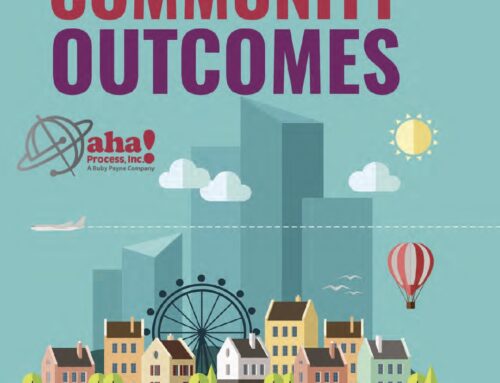As the dean of basic education at a two-year technical college, I am privileged to work with a very diverse group of students, and a plethora of under-resourced students, trying to get a foothold on the educational ladder. I am also the certified Framework for Understanding Poverty trainer for our college, and we are just starting to see the benefits of looking at college student retention issues through our Framework lens. One clear example of our continuing paradigm shift is how we have changed our approach to helping students on academic suspension.
For the last seven years, I sat on a committee that meets with students trying to re-enter school after two consecutive failing semesters, which meant they were suspended and had to attend this hearing to possibly return. Month after month (yes, the hearings were monthly), we would hear the same stories, and they rarely had anything to do with academic ability. Rather, they were about lack of support systems, choices made to maintain relationships rather than delay gratification for achievement, and a variety of other issues that are very familiar to those who are engaged in work with under-resourced students. When the committee discussed each student’s case, we often found ourselves discussing whether or not the student now appeared to understand how important things like attendance, punctuality, and professional communication were to college success. Of course, we hadn’t indicated to students that we wanted them to demonstrate this; we just hoped they did. As we started using Dr. Payne’s work, as well as the Understanding and Engaging Under-Resourced College Students book, as a basis for understanding our students better, we had the epiphany that we wanted students to tell us they understood hidden rules that they had never had the opportunity to learn. It was no wonder we felt frustrated on a monthly basis.
So we committed to changing, and we used Framework as the lens to look through and guide our changes. Our guiding question would be, “What if, rather than evaluate students’ readiness to return, we designed a process that builds resources and increases the odds of a successful return?” When you approach suspensions as a chance to educate someone, you do things differently. We no longer send out letters that say, in essence, “You’re suspended; come on in to a committee you don’t know to talk about things you don’t understand.” Rather, we ask students to prepare a letter for appeal, and we give them clear directions on what should be in it. We don’t just hope they randomly identify the hidden rules required to succeed in college; we spell them out in the letter and ask the students to explain how they are moving toward demonstrating these new behaviors. After the letter is submitted, the students don’t meet with a committee but instead get a meeting with the administrator for the program area they are pursuing. The administrator works cooperatively with students to build a “success plan” to support their return.
This is a brand new process for us, and while we are confident that it is better than what we had, we can already see potential design flaws to address in the upcoming months. We still send a lot of letters, and this means students have to read a lot of information. Our growing knowledge of under-resourced students tells us that we need to create visual aids and graphic organizers to help students understand the process as well. We also are contemplating running “prepare for your appeal” seminars to give students a chance to develop their letter in a supportive environment. I’m sure that in the months and years to come, we will find additional improvements as well. By readjusting our point of view and seeing students as needing more resources to succeed, we were able to take something that felt very punitive and turn it into a far more positive experience for everyone involved. I wonder what other traditional practices in higher education are based on hidden rules that are a mystery to our under-resourced students?








